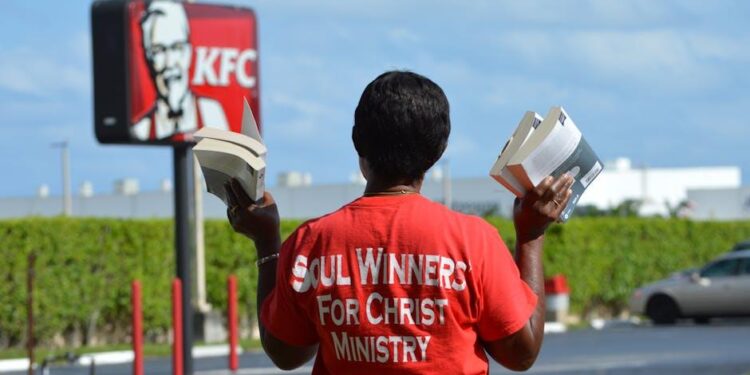Table of Contents
Introduction
For seven seasons, Officer Kono Kalakaua was an indispensable pillar of the Hawaii Five-0 reboot.
Portrayed by Grace Park, she was far more than a token team member; she was a former professional surfer turned expert sharpshooter, a skilled martial artist, and the sole female operative in the original task force.1
Her character brought a unique combination of physical prowess and what executive producer Peter Lenkov described as a “beauty and serenity to each episode”.3
Alongside her cousin Chin Ho Kelly (Daniel Dae Kim), Steve McGarrett (Alex O’Loughlin), and Danny Williams (Scott Caan), Kono formed the core “ohana” that anchored the popular CBS procedural.
In June 2017, a shockwave rippled through the show’s dedicated fanbase with the announcement that both Grace Park and Daniel Dae Kim, two of the four original leads, would not be returning for the eighth season.5
The departure of two such integral characters was jarring, leaving viewers to question the future of the series and the fate of the characters they had followed for 168 episodes.3
The answer to why Kono left is not a simple one.
It is a complex schism with two distinct yet inextricably linked narratives.
The first is the fictional, in-universe explanation meticulously crafted by the show’s writers to account for her absence.
The second, and more consequential, is the contentious, real-world battle over pay equity and professional integrity that unfolded behind the closed doors of contract negotiations.
This report will dissect both fronts to provide a definitive and exhaustive explanation of Kono Kalakaua’s departure from
Hawaii Five-0.
Part I: The Fictional Exit: Kono’s Crusade and Its Narrative Fallout
Subsection 1.1: Setting the Stage – Kono’s Final Arc
Kono Kalakaua’s journey over seven seasons was one of significant growth and hardship.
She evolved from a police academy graduate personally recruited by McGarrett into a formidable and seasoned detective, highly skilled in undercover operations, interrogation, and marksmanship.2
A central element of her character arc was her deeply loyal and resilient relationship with Adam Noshimuri (Ian Anthony Dale), the heir to the Yakuza crime syndicate who fought to leave his past behind.
Their love story was a cornerstone of the series, tested by prison sentences, being on the run from assassins, and the constant threat of the criminal underworld.2
Their bond, forged through immense adversity, was presented to the audience as unbreakable.
Her final on-screen appearance occurred in the Season 7 finale, Episode 25, titled “Ua mau ke ea o ka ʻāina i ka pono” (“The Life of the Land is Perpetuated in Righteousness”).9
The episode’s central plot involved Five-0’s dangerous rescue of a group of young girls trapped in a sophisticated sex trafficking ring.
The experience is shown to have a profound impact on Kono, who becomes increasingly disillusioned with the limitations of local law enforcement in tackling such a widespread and monstrous crime.4
The episode concludes with Kono, having made what the synopsis calls a “life-changing decision,” boarding a flight alone, bound for Carson City, Nevada, to take her fight against human trafficking to a national level.8
This departure was framed as a heroic, mission-driven choice, born from her unwavering commitment to justice.
Subsection 1.2: The Official In-Universe Explanation
Following the broadcast of the Season 7 finale, the show’s writers and producers provided a clear in-universe explanation for Kono’s absence.
Executive producer Peter Lenkov confirmed that Kono had left Hawaii to join a specialized task force on the U.S. mainland dedicated to dismantling sex-trafficking networks.5
This storyline was presented as a logical and noble progression for her character, leveraging her established passion and investigative skills for a greater cause.6
Lenkov elaborated that Kono was on a “very personal mission,” a narrative choice that he felt played into the show’s broader theme of “legacies”.12
By giving her an open-ended and heroic mission rather than killing her off, the writers intentionally left the door open for a potential return.
This was a calculated decision, designed to provide a satisfying character motivation while preserving the possibility of a future guest appearance, should circumstances change.7
Subsection 1.3: The Unraveling – Kono and Adam’s Off-Screen Divorce
The narrative handling of Kono’s exit became significantly more complicated due to a real-world casting decision: Ian Anthony Dale, who played Kono’s husband Adam, remained with the show and was promoted to a series regular for Season 8.8
This created a logistical challenge for the writers, who now had to manage a main character whose wife was indefinitely away on a dangerous, all-consuming mission.
The writers’ solution, revealed in Season 9, proved highly controversial.
After a period of maintaining a long-distance relationship, Adam returns from a visit to Kono and announces to the team that she has left him, ending their marriage entirely off-screen.5
This abrupt dissolution of one of the show’s most developed and beloved relationships sparked a significant backlash from fans.
Viewers who had invested years in the Kono-Adam saga, watching them overcome seemingly insurmountable obstacles, found the breakup to be illogical and a profound disservice to both characters’ established histories.7
Online forums filled with comments calling the writing “sloppy” and expressing disbelief, with one fan summarizing the sentiment: “Kono and Adam’s relationship was so good! Their character development was amazing and I know Kono wouldn’t just leave Adam after all they’ve been through”.7
This decision highlights a common tension in long-running television series.
The writers needed a noble, character-driven reason for Kono to leave, and the sex trafficking crusade provided it.
However, they also faced the pragmatic problem of what to do with Adam’s character, who would be narratively constrained by a permanent long-distance marriage.
The off-screen divorce was a plot-driven solution to free Adam for new storylines.
This pragmatic choice, however, clashed violently with years of character development that had established the couple’s bond as a central theme of loyalty and perseverance.
The result was a jarring narrative dissonance: Kono’s heroic exit was retroactively tainted by a personal decision that felt unearned and out of character, revealing how real-world casting conflicts can force writers into making narratively unsatisfying choices that damage the very character integrity they seek to preserve.
Part II: The Real-World Impasse: A Principled Stand for Parity
Subsection 2.1: The Core of the Conflict – The Pay Gap
While Kono was embarking on a fictional crusade, the actress who portrayed her, Grace Park, was engaged in a very real battle.
The simultaneous departure of Park and her co-star Daniel Dae Kim was not a creative choice but the result of failed contract renegotiations with CBS Television Studios ahead of the show’s eighth season.8
The central issue was pay equity.
Park and Kim, the series’ two prominent Asian-American leads and original cast members since the pilot, were seeking salary parity with their white, male co-stars, Alex O’Loughlin and Scott Caan.14
According to multiple reports from industry publications like
Variety and The Hollywood Reporter, the final contract offer presented by CBS to Park and Kim was between 10% and 15% lower than the salaries earned by O’Loughlin and Caan.3
Further compounding this financial disparity was a structural one.
O’Loughlin and Caan’s contracts also included lucrative back-end percentage deals, which gave them a share of the show’s profits—a standard practice for top-billed stars on highly successful, long-running series.3
These profitable back-end deals were reportedly not extended to Park and Kim, cementing a two-tiered system among the show’s original four leads.
The conflict was not merely about a salary gap; it was about a fundamental, structural undervaluing of the actors’ contributions.
A base salary is payment for work performed, but a back-end deal signifies a higher level of partnership, acknowledging an actor’s role in the show’s overall financial success and long-term value.
By offering this only to the white male stars, the network implicitly defined two classes of “original cast members.” This suggests that CBS viewed O’Loughlin and Caan as the primary drivers of the show’s profitability, while Park and Kim, despite being marketed as integral to the “core four” from day one, were considered more expendable, supporting players.
The dispute was therefore not just about money; it was about the valuation of their status within the show’s hierarchy, a hierarchy that had clear racial and ethnic lines.
Subsection 2.2: The Actors’ Position – A “Drastic” Pay Cut and the Quest for Equality
In a later interview, Daniel Dae Kim shed light on the history of this disparity, revealing he had taken a “drastic” pay cut when he first signed on for Hawaii Five-0 after his successful run on Lost.19
He described the pay gap between himself and the two white leads as “significant” from the very beginning.
When the time came to renegotiate after seven seasons, his goal was straightforward and principled.
As he explained it, he wanted the network to “Make us all equal.
Make us all the ensemble that I thought we always were”.19
Kim’s poignant phrasing—”the ensemble that I thought we always were”—is deeply revealing.
It exposes a painful disconnect between the on-screen chemistry and public marketing of the “Five-0 team” and the stark business reality that existed off-screen.
The show was consistently promoted as being about the core team of four, the “ohana”.4
Kim’s words suggest that he and likely Park operated for years under the belief that they were part of a genuine ensemble.
The contract negotiations shattered that perception, revealing that from the network’s perspective, it was a show with two leads and two supporting actors.
When their request for parity was ultimately denied, both Park and Kim made the “difficult choice” not to renew their contracts, prioritizing their principles over continuing their roles on the hit show.13
Their departure was re-contextualized from a simple failed negotiation into a painful realization that their own perception of their value to the production was not shared by their employers.
Part III: A War of Words: Deconstructing the Public Narratives
The aftermath of the contract dispute played out in the media, with the actors, the network, and the showrunner each presenting carefully constructed, and often conflicting, public narratives.
Subsection 3.1: The Actors Speak – “Integrity” and “Equality”
Daniel Dae Kim was the first to address the situation publicly.
In a lengthy Facebook post in July 2017, he confirmed his departure with a diplomatic but firm tone, stating that “CBS and I weren’t able to agree to terms on a new contract”.13
He then powerfully framed his decision within a much broader context, telling his fans, “The path to equality is rarely easy”.13
This single sentence transformed the narrative from a private salary dispute into a public stand on a major social issue.
At a later event, he further articulated his position, explaining that it is possible to be “grateful for the opportunity and have respect for your colleagues and still maintain a steadfast sense of your self-worth”.19
Grace Park remained silent for more than a year, later explaining that “the whole situation was just a bit too charged for me” and that she was “not interested in airing out dirty laundry”.18
When she finally broke her silence in a September 2018 interview with
Entertainment Weekly, she revealed that the reasons for her exit were more complex than salary alone.
“There were a number of factors spanning the show that affected the non-renewal of my contract,” she stated carefully, concluding, “I’m grateful for the lessons learned, but I chose what was best for my integrity”.18
Her use of the word “integrity” shifted the focus from a purely financial matter to a moral and ethical one, implying that the work environment or the terms of the offer were fundamentally compromising.
In a telling aside, she added that she was “good leaving the boys’ club,” hinting at broader cultural issues on set that went beyond the numbers on a contract.18
Subsection 3.2: The Official Rebuttals – The Network and the Showrunner
The official statements from CBS and executive producer Peter Lenkov painted a different picture.
CBS’s public position was that it had made every reasonable effort to keep the actors.
In multiple statements, the network emphasized that it had offered both Park and Kim “large and significant salary increases”.12
CBS executive Kelly Kahl doubled down on this at a press event, stating, “We love both of these actors and did not want to lose them.
We made very, very strong attempts to keep them”.24
This corporate language was designed to portray the network as generous and to frame the actors’ departure as their own choice despite a fair offer, strategically sidestepping the actual demand for
parity.
Peter Lenkov’s public comments were more complex and, at times, contradictory.
He initially released a warm statement calling Park and Kim “ohana” and praising their contributions.3
However, he also made a public statement implying that Park had left the show to spend more time with her family—a narrative Park later had to personally refute.18
“I let him know, ‘That wasn’t cool that you made a statement on my behalf,'” Park recounted.
“I didn’t leave for that reason”.17
This exchange revealed a significant breakdown in communication and trust.
Later, in an interview, Lenkov attempted to reframe the entire conflict by claiming the actors had been “talking about leaving the show prior to any negotiations,” a narrative that downplayed the centrality of the pay dispute.12
Table: Comparative Analysis of Public Statements
The clear divergence in the public discourse highlights the fundamental disagreement at the heart of the exits.
| Entity | Key Quote/Stated Position | Date/Source | Analysis of Subtext & Implication |
| Daniel Dae Kim | “The path to equality is rarely easy.” | July 2017 13 | Frames the departure as a principled stand for a cause larger than himself, invoking the language of civil rights and social justice to appeal to a moral consensus. |
| Grace Park | “I chose what was best for my integrity.” | September 2018 21 | Shifts the focus from a purely financial dispute to a moral and ethical one, suggesting the work environment or the terms offered were fundamentally compromising. |
| CBS | Offered “large and significant salary increases.” | July/August 2017 12 | Corporate language designed to portray the network as generous and reasonable, framing the actors’ departure as their choice despite a “fair” offer. It deliberately avoids the core issue of parity. |
| Peter Lenkov | Implied Park left for family reasons and that the actors wanted to leave regardless of negotiations. | July 2017 / September 2017 12 | An attempt to provide a softer, more palatable public reason for the exit, which backfired when refuted by Park, revealing a deeper disconnect and an effort to control the narrative. |
This clash of narratives reveals a fundamental impasse.
The actors used words of principle—”equality,” “self-worth,” “integrity”—making their case in the court of public opinion based on ethics.
The corporation used words of finance and logistics—”significant increases,” “lucrative offer”—making a business case based on their valuation.
They were, in essence, arguing about two different things.
For Park and Kim, a “significant increase” was meaningless if it did not achieve “equality.” For CBS, “equality” was a non-starter if it exceeded their established budget and hierarchy.
The dispute was ultimately a clash of values, not just numbers.
Part IV: The Industry Echo Chamber: Context and Consequence
Subsection 4.1: A Tale of Two Ensembles – The Lack of Cast Solidarity
The Hawaii Five-0 contract dispute stands in stark contrast to other famous television cast negotiations.
The ensembles of hit sitcoms like Friends and The Big Bang Theory famously negotiated together to ensure pay parity for all principal cast members.25
In those cases, the highest-paid actors reportedly took pay cuts or used their leverage to lift their colleagues’ salaries, embodying the “all for one, one for all” mentality.
There is no evidence that such solidarity existed on the set of Hawaii Five-0.
The silence from co-stars Alex O’Loughlin and Scott Caan was conspicuous.
Many fans and media critics pointed to this lack of support from the higher-paid actors as a crucial factor in the negotiations’ failure.25
A later comment from O’Loughlin seemed to underscore this disconnect.
When asked about the possibility of Park and Kim returning for a proper farewell, he replied, “All I know is they left and we got two new fantastic young actors who want to be here”.21
This remark, whether intended to be dismissive or not, was perceived by many as a stark departure from the “ohana” ideal the show promoted.
The situation serves as a powerful case study, demonstrating that on-screen chemistry does not automatically translate to off-screen solidarity, especially when entrenched financial and racial hierarchies are at play.
It suggests that without active intervention from those at the top of a pay scale, systemic inequalities are likely to be perpetuated.
Subsection 4.2: The Broader Conversation – Race, Representation, and Hollywood’s Pay Gap
The departures of Park and Kim immediately ignited a widespread and necessary conversation in the media about Hollywood’s persistent pay gap, throwing a spotlight on the racial dimension that often intersects with gender disparity.3
The optics of the situation were impossible to ignore: on a show set in Hawaii, a U.S. state with a majority Asian American and Pacific Islander population, the two white male leads were being valued, both in salary and in profit participation, significantly higher than their Asian-American co-stars who had been with the show for the exact same length of time.3
Daniel Dae Kim, in particular, became a reluctant but articulate voice on the issue.
He spoke of the structural challenges facing actors of color, noting how difficult it is for an Asian-American actor to find a “well developed, three dimensional character like Chin Ho” in the first place, making the decision to walk away from such a role even more profound.23
Their stand was seen by many as an admirable and necessary act of defiance against a discriminatory industry standard.3
Part V: The Aftermath and Enduring Legacy
Subsection 5.1: The Show Must Go On?
In the wake of the departures, Hawaii Five-0 moved quickly to rebuild its team.
Two new characters, former police academy washout Tani Rey (Meaghan Rath) and ex-Navy SEAL Junior Reigns (Beulah Koale), were introduced in Season 8 to fill the void left by Kono and Chin.8
While the show continued for three more seasons, concluding after its tenth season in 2020, many long-time fans felt the series was never the same.14
The departures marked a clear “before and after” point in the show’s history, with some viewers noting a decline in the writing and a change in the overall chemistry and feel of the series.7
When the series finale approached, showrunner Peter Lenkov explained that he did not reach out to Park and Kim for a final cameo.
He reasoned that he would not have been able to do their characters justice with a brief appearance, stating, “They deserved more”.14
While a practical explanation, it also served as a quiet acknowledgment of the deep rift that remained.
Subsection 5.2: Life After Five-0
The professional careers of both Grace Park and Daniel Dae Kim flourished after their exit, serving as a powerful form of vindication.
Park was immediately cast in a leading role on the ABC ensemble drama A Million Little Things.
In interviews promoting the new show, she pointedly praised its production for actively cultivating a true “ensemble vibe” where all cast members received the same treatment, a clear reference to her past experience.18
Daniel Dae Kim’s post-Five-0 success was even more pronounced.
Through his production company, 3AD, he served as an executive producer on the breakout ABC medical drama The Good Doctor, an American adaptation of a Korean series that became a massive international hit.27
He also continued to work steadily as an actor in high-profile projects, cementing his status as a respected and influential figure in Hollywood.19
Conclusion: A Legacy Redefined
The departure of Officer Kono Kalakaua from Hawaii Five-0 was a story told on two fronts.
Narratively, she left on a heroic crusade, a character choice that, while noble in intent, was later undermined by clumsy writing that fractured her most important relationship.
In reality, she left because Grace Park, alongside Daniel Dae Kim, made a principled and courageous stand for equal pay and professional integrity.
This controversy has now become an indelible part of the Hawaii Five-0 reboot’s legacy.
The show can no longer be remembered simply as a successful action procedural set in a tropical paradise.
It is now, and will forever be, a significant case study in Hollywood labor relations, a stark example of racial and gender pay disparity, and a cultural touchstone for the moment when two prominent Asian-American actors chose their self-worth over a lucrative, long-running role.
While Kono’s mission to fight for the vulnerable was fictional, Grace Park’s real-life stand had a tangible impact, contributing to a vital and ongoing industry conversation.
Her exit proved that sometimes the most powerful and enduring stories are the ones that happen when the cameras stop rolling.
Works cited
- Hawaii Five-0 Cast Guide: Who Plays Every Main Character In The Reboot – Screen Rant, accessed on August 6, 2025, https://screenrant.com/hawaii-five-0-cast-character-guide/
- Kono Kalakaua – mckonoglimpse – WordPress.com, accessed on August 6, 2025, https://mckonoglimpse.wordpress.com/bios/kono-kalakaua/
- “Hawaii Five-O” Is Apparently Okay With Paying Asian Actors Less Money, accessed on August 6, 2025, https://www.refinery29.com/en-us/2017/07/161774/hawaii-five-0-stars-grace-park-daniel-dae-kim-pay-inequality
- Hawaii Five-0 Loses Two Original Cast Members for Season 8 – Parade, accessed on August 6, 2025, https://parade.com/583370/paulettecohn/hawaii-five-0-loses-two-original-cast-members-for-season-8/
- How Hawaii Five-O Season 8 Explained Chin And Kono’s Departure, accessed on August 6, 2025, https://screenrant.com/hawaii-five-o-season-8-chin-kono-departure/
- Daniel Dae Kim & Grace Park Exit Hawaii Five-0 – Screen Rant, accessed on August 6, 2025, https://screenrant.com/hawaii-five-0-daniel-dae-kim-grace-park-exit/
- I hate what the writers did to Kono and Adam. : r/HawaiiFive0 – Reddit, accessed on August 6, 2025, https://www.reddit.com/r/HawaiiFive0/comments/1frle7t/i_hate_what_the_writers_did_to_kono_and_adam/
- Hawaii Five-0 (2010 TV series) – Wikipedia, accessed on August 6, 2025, https://en.wikipedia.org/wiki/Hawaii_Five-0_(2010_TV_series)
- Hawaii Five-0 (2010 TV series) season 7 – Wikipedia, accessed on August 6, 2025, https://en.wikipedia.org/wiki/Hawaii_Five-0_(2010_TV_series)_season_7
- Hawaii Five-O Season 7 Episodes – Watch on Paramount+ United Kingdom – Paramount Plus, accessed on August 6, 2025, https://www.paramountplus.com/gb/shows/hawaii_five_0/episodes/7/
- This Is How ‘Hawaii Five-0’ Explains Chin and Kono Exits in Season …, accessed on August 6, 2025, https://www.tvinsider.com/401331/hawaii-five-0-return-season-8-new-cast-members/
- ‘Hawaii Five-0’ Boss Is ‘Shocked’ That Cast Exits Led to Criticism of Show’s Diversity, accessed on August 6, 2025, https://www.thewrap.com/hawaii-five-0-diversity-exits-season-8-premiere/
- Daniel Dae Kim Speaks Out About ‘Hawaii Five-0’ Exit – Geeks Of Color, accessed on August 6, 2025, https://geeksofcolor.co/2017/07/05/daniel-dae-kim-speaks-out-about-hawaii-five-0-exit/
- Hawaii Five-0 boss explains why Daniel Dae Kim and Grace Park didn’t return for series finale – Digital Spy, accessed on August 6, 2025, https://www.digitalspy.com/tv/ustv/a32050220/hawaii-5-0-daniel-dae-kim-grace-park-series-finale/
- The Asian stars of ‘Hawaii Five-0’ quit the show after CBS refused to pay them as much as their white costars – Reddit, accessed on August 6, 2025, https://www.reddit.com/r/television/comments/6ljqid/the_asian_stars_of_hawaii_five0_quit_the_show/
- Daniel Dae Kim breaks silence over ‘Hawaii Five-0’ exit: ‘The path to …, accessed on August 6, 2025, https://mashable.com/article/hawaii-five-0-daniel-dae-kim-grace-park-leaving-pay-equality
- Hawaii Five-0’s Grace Park breaks silence on exit – Digital Spy, accessed on August 6, 2025, https://www.digitalspy.com/tv/ustv/a866354/hawaii-five-0-grace-park-breaks-silence-on-exit/
- Grace Park talks Hawaii Five-0 exit, A Million Little Things, accessed on August 6, 2025, https://ew.com/tv/2018/09/14/grace-park-hawaii-five-0-exit-million-little-things/
- Why Daniel Dae Kim Left Hawaii Five-0 – SlashFilm, accessed on August 6, 2025, https://www.slashfilm.com/1794694/why-daniel-dae-kim-left-hawaii-five-0/
- Daniel Dae Kim Addresses His Departure From ‘Hawaii Five-0’ At TCA Panel | LAist, accessed on August 6, 2025, https://laist.com/news/entertainment/daniel-dae-kim-addresses-his-depart
- Grace Park Breaks Silence on ‘Hawaii Five-0’ Exit: ‘I Chose What Was Best for My Integrity’, accessed on August 6, 2025, https://www.etonline.com/grace-park-breaks-silence-on-hawaii-five-0-exit-i-chose-what-was-best-for-my-integrity-109677
- Grace Park Is Finally Talking About Leaving Hawaii Five-0 – TV Guide, accessed on August 6, 2025, https://www.tvguide.com/news/why-grace-park-left-hawaii-five-0/
- One of the stars of Hawaii Five-O has spoken out following their exit from the show, accessed on August 6, 2025, https://entertainment.ie/tv/tv-news/one-of-the-stars-of-hawaii-five-o-has-spoken-out-following-their-exit-from-the-show-205263/
- CBS Explains ‘Hawaii Five-0’ Diversity, Daniel Dae Kim, Grace Park’s Shocking Exit, accessed on August 6, 2025, https://www.ibtimes.com/cbs-explains-hawaii-five-0-diversity-daniel-dae-kim-grace-parks-shocking-exit-2573275
- Daniel Dae Kim Opens Up On Leaving ‘Hawaii Five-0’ After Pay Dispute – Reddit, accessed on August 6, 2025, https://www.reddit.com/r/television/comments/6lfsww/daniel_dae_kim_opens_up_on_leaving_hawaii_five0/
- Daniel Dae Kim: Hawaii Five-0 Contract Dispute and Subsequent Exit ‘Changed My Relationships’ With Co-Stars : r/television – Reddit, accessed on August 6, 2025, https://www.reddit.com/r/television/comments/mpgtda/daniel_dae_kim_hawaii_five0_contract_dispute_and/
- Daniel Dae Kim Gives Bittersweet Statement On Leaving ‘Hawaii Five-0’ – Character Media, accessed on August 6, 2025, https://charactermedia.com/daniel-dae-kim-gives-bittersweet-statement-on-leaving-hawaii-five-0/
- Grace Park Reveals Why She Left Hawaii Five-O – Refinery29, accessed on August 6, 2025, https://www.refinery29.com/en-us/2018/09/210045/grace-park-explains-hawaii-five-o-departure






